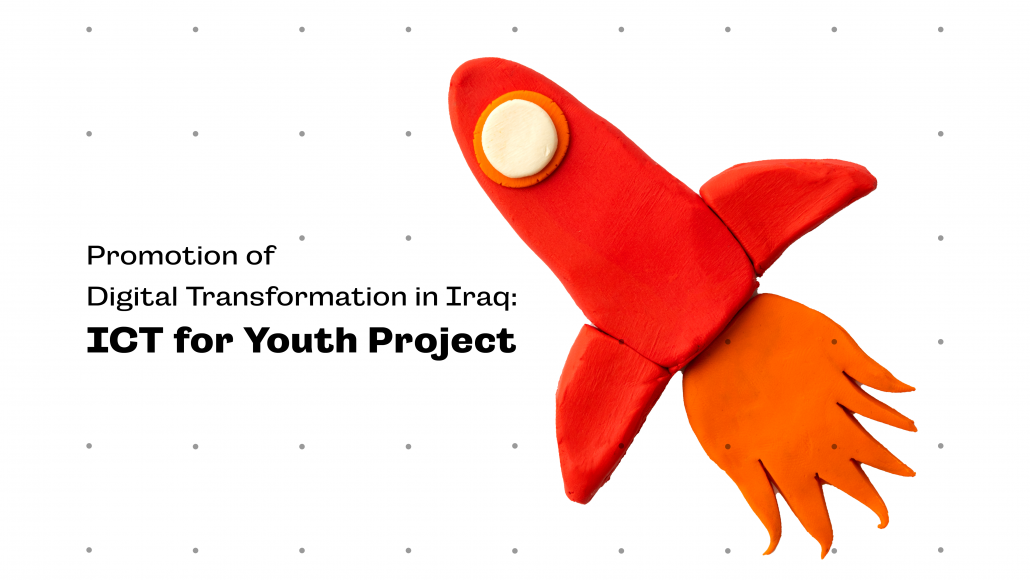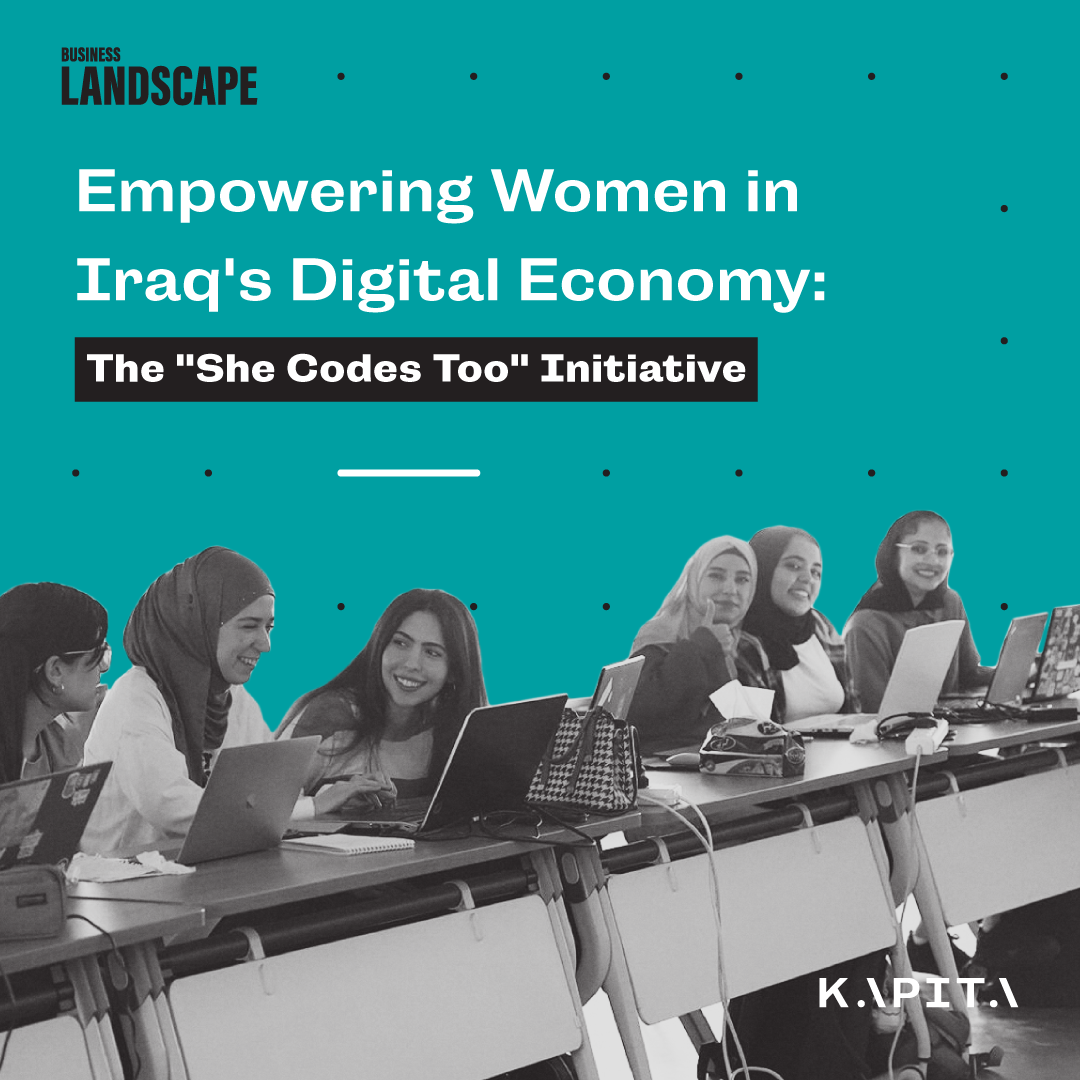Promotion of Digital Transformation in Iraq: ICT for Youth Project
Sama Rabeea
Advisor for Start-up Entrepreneurship
Information and Communications Technology (ICT) for Youth
It is no secret that the digital sector has the potential to greatly benefit individuals, businesses, and entire economies at large. Digitalization enhances access to information and services at both individual and business levels. Digital services boost economic growth and create much needed job opportunities. In today’s increasingly interconnected world, the digital sector is steering innovation and competitiveness around the globe, and it plays a crucial role in shaping the way societies operate. Amid this technological advancement, Iraq should not be left behind.
Since 2017, the Deutsche Gesellschaft für Internationale Zusammenarbeit (GIZ) GmbH has been implementing the project “Information and Communication Technology (ICT) – Prospects for a Modern Youth in Iraq” on behalf of the German Federal Ministry for Economic Cooperation and Development (BMZ). The ICT project aims to unlock the potential of the tech sector as a motor for much-needed job creation in the country by providing young Iraqis with the infrastructure and skills to start innovative businesses or to find employment in the field of technology. For example, the project has supported the setup of seven innovation hubs in Baghdad, Basra, Mosul, Erbil, and Sulaymaniyah. These hubs have been established in selected urban areas to provide training, coworking, and maker spaces, which are equipped with modern machineries such as 3D printers, laser and plasma cutters, computer numerical control (CNC), and programmable logic controller (PLC) machines. In addition, they offer ideal environments for young people to improve their practical skills, access a broad network of peers, and receive support from experienced mentors to develop their business ideas. The offered trainings focus on skills in ICT, entrepreneurship, and soft skills, thus creating employment prospects for entrepreneurs and job seekers alike.
So far, more than 8500 people have successfully participated in one of the 400 training courses and, thus, enhanced their technical skills. Moreover, the development of 378 startups in the digital sector has led to the creation of countless job opportunities.
“The digital sector in Iraq is showing dynamic growth, contributing not only to job creation but also to the urgently needed diversification of the private sector,” says Steffen Schnittger, Project Advisor. ”However, leveraging this potential also requires the commitment of political decision-makers to ensure that Iraq does not fall behind. Therefore, we look forward to continuing our work with Iraqi partners to accelerate the digital transformation in the country.”
Despite its steady development and the increasing number of tech startups and entrepreneurs, the Iraqi digital sector faces many hurdles. Most pressuring: the lacking governmental support structures and limited access to loans or capital from investors. In 2021, according to the World Bank's "Doing Business" report, Iraq ranked 160 out of 190 countries, indicating that it is a challenging place to do business, and it is difficult to get Iraqi or foreign financiers to make investments. This makes it hard for startups to grow and for the ecosystem to develop. Motivated to solve these challenges, the ICT project supported KAPITA in launching the first angel investors network in the country, the Iraqi Angel Investor Network (IAIN). Its mission is to build the foundation for Iraqi angel investors, providing Iraqi startups with knowledge and seed funds, with proper domestic and international connections.
“During the five years of implementation to date, the ICT project has seen a large number of positive developments in the entrepreneurial and tech ecosystem, exponential growth in the number of startups emerging, and a large increase in appetite to explore jobs in the tech sector. These are just the initial steps in the process of supporting digital transformation and adaptation in Iraq. “The enthusiasm for such an approach and high-quality skills and developments among Iraqi youth lead this process, and the support of the ICT project will continue in this sector’’, concluded Niall Ardill, Advisor for Start-up Entrepreneurship at GIZ Iraq.
Young Iraqis are increasingly interested in the digital sector as a possible field of employment; they recognize that most businesses need digital capabilities to fuel their growth. Therefore they are motivated to acquire the skills required by the modern market. Overall, the digital sector in Iraq has the potential for significant growth in the coming years, which will aid in the transformation of the country.






